|
I don't know what it was about this interaction that stilled me so. The words hit me and I sighed with contented longing, as one does when reading great poetry or watching a sublime musical performance. Their conversation was slight, but contained a soul-baring honesty, the lowering of an emotional shield in the course of a few lines. I reproduce the words here, that they might offer something akin to what I felt in the moment:
I heard only their voices, somewhere just behind me. From the sounds of it they were strangers. I seem to recall their presences appearing at different stops. The woman, with a large white dog, was soft-spoken and elderly. The man's voice was that of one in early middle age, a world-weary resignation stemming from a being still too young for such things. The disenchantment in his tone was colored with hopes not dashed, but subdued. "Love," he said. "Love is overrated. Girlfriends are overrated." "I don't know about that," she said quietly. "Having a personal dog as a friend is not overrated." Here he paused, and they shared a mutual silence. Then he continued: "Marriage... I could go into a whole list of stuff that's overrated. I'm overrated." "Possibly." "Perhaps." I looked ahead at the glistening nighttime pavement streaking by, deep reds and blues reflected in the wet surfaces, giving life to the inky indigo blackness all around. The many tiny sounds that together collected to form his voice seemed borne from years of disappointed loss. He made the statements as if testing their veracity, disillusioned but unable to commit to such a broken worldview. Hope is hard to quell, and has an detectable ring even when it's faint. Her responses were those of someone who listens, who doesn't explicitly disagree if she can help it. Their shared silences felt like small victories, agreements between two very different souls. The space after his "perhaps" was an opening floodgate. He wasn't dispirited anymore. He had let his guard down, no longer lashing out, daring to look in a mirror, somehow feeling easier. I heard them chuckle lightly. The seed of a tremendous new thought can grow from the most unexceptional of circumstances. The two strangers kept talking after that, but I forget the words. All I heard was a gentle rising in the man's tone. The face I finally looked at when he got up to leave was not one of chagrin. He was feeling lighter already, on his way to somewhere new.
0 Comments
It's that time of year again. The nominations are out, the awards circuit is humming, and the reviews and awards are stacking up. My great love of film compels me to share with you my list of the year's top ten films (actually, fourteen films) on a blog that simply has nothing doing with such matter. I've often wondered at how my intense love of public transit fits in with my passion for the arts. What could those two worlds possibly have to do with each other?
A fascination and love for humanity, thats what. In that respect film has everything to do with the frame of mind through which I observe the people. Great films are meaningful, truthful considerations of human nature, where ideas are presented with a high level of craft. In that spirit I see every reason to include these writeups alongside the bus stories, and I hope you enjoy them. Starting with the bottom of the list first, here are the final four entries, plus some thoughts on a film that didn't make the list. Refer here for my thoughts on film in 2012. 11. Captain Phillips (dir. Paul Greengrass) True story of the 2009 American cargo ship hijacking, the first such event in two hundred years: Somali pirate Muse (Barkhad Abdi) and his cohorts overtake Captain Richard Phillips' (Tom Hanks) ship, the Maersk Alabama. Trailer. Phillips' greatest conceit is to consider the above story a two-hander between American ship captain (Tom Hanks) and Somali pirate (Barkhad Abdi). This is not a film about The Other invading the world of The American Hero. Rather, it's about two men doing their respective jobs as they clash violently. Both are attempting to bring home a day's worth of bread to support themselves and their families. We begin with the home lives of both men, which could hardly be any more different, and watch as each is made aware of the similarities extant in the other. Mr. Greengrass' work, especially outside of the Bourne series, is intensely mature, in the traditional sense of the word; all the characters are intelligent people with disciplined skill sets and focused concerns. There are no kids, comic relief characters, or romantic subplots here. Greengrass' technique remains unparalleled. He has practically devised his own genre of handheld verismilitude; cinematographers know there are many ways to shoot handheld, and his is intentionally chaotic, with the edits designed to keep the eyes moving. Shots follow shots in ways that violate any sense of where the eye anticipates the next point of interest to be. Note how easily Rule of Thirds is violated, and the anachronistic sensibility of haphazard compositions being forced in to the rigorous Scope aspect ratio. The camera operator seems entirely unaware of how the action will unfold, and as such it all feels immediate and real- the camera never leads the action. At the same time there is a cinematic quality as well: nobody shoots documentaries in 2.35:1. An outstanding, full-blooded piece of cinema, timely, probing, and concerned with reality. A triumph of technique and humanity- the final moments contain an emotional power as strong as anything on screen this year. Those last three or so minutes are undoubtedly the best acting Hanks has ever done, and the film is a success for getting us to see a pirate and a captain as equals, and to feel for both by the film's end. 12. Mud (dir. Jeff Nichols) Two boys find themselves helping a runaway fugitive (Matthew McConaughey) in the backwoods of the Arkansas Delta. Trailer. Mud contains more than mere echoes of Mark Twain. It evokes Mr. Clemens' canonical works in a deeply satisfying way, while also bringing the unique voice of Jeff Nichols (Take Shelter), who wrote as well as directed. A richly textured piece about adults as seen through the eyes of children, replete with the authenticity of a director who has lived in the world he's depicting. McConaughey knocks it out of the park with a carefully modulated performance blowing away anything previously seen in his entire career; in mid-2013 that was a surprise, but now, at the end of the year, with three other appearances on this top ten list alone, his prodigious talent is eagerly expected. The film is also curious in its multiple definitions of what it means to be a man. Different adult characters harbor contrasting views on masculinity, and the film does an excellent job of portraying how bewildering the options are for young boys. 13. Blue is the Warmest Color (dir. Abdellatif Kechiche) Charts the full course of a relationship between two young girls. Trailer. Director Abdellatif Kechiche (Secret of the Grain) has a nigh-exploitative gaze in this film, and I'm not speaking only about those sex scenes. I don't recall his other work being so eager to enter into characters' personal space. Kechiche's camera ventures close to the actor's faces regardless of their emotional state, offering lingering closeups of things we rarely see in films (people chewing with their mouths open) or things we thought we saw a lot, but really just had no idea (crying, crying, and more crying). I feel like I saw more tears shed in this film than the last decade of cinema. It's an exhausting experience. And an excellent one. The result of this invasive camera is that we are drawn closely into the private worlds of these two characters in ways we are not accustomed. After seeing the film, one finds oneself wondering what the characters will do next, temporarily forgetting they are fictional. An intimacy is established in the language of the camera and also in the substantial runtime (179 minutes), allowing room for the scenes to breathe, and for complex emotions to be delineated. In a teenager's life, everything happening right now is the most important thing, and this urgency is well communicated in the high-impact approach. The actors augment this with two searing, devastating performances which, though staggeringly effective, were had at a high price (witness this now-famous Cannes interview, wherein the two leads describe the ordeal of the film, calling it by far the worst professional experience they've ever had). The moment where the two leads first converse, as well as the scene in which they break up, alternately engross and stun the viewer in their communication of pure, unadulterated emotion. Blue is also unique in its anticipation of criticisms. The film's text addresses criticism we might have, from within the film itself. The film's opening lines discuss digressions, fitting for a three-hour film; elsewhere, characters argue over what right males (such as Blue's director) have to depict female pleasure (such as the protagonists), and what validity there is in their attempts. It is a remarkably self-contained piece, incredibly focused and pulsing with the contemporary immediacy of young love, watching intently as the characters stumble, dance, and crash through their relationship, reaching out for that elusive and tenuous catharsis we find in the journey from self-absorbed to self-aware. 14. Inside Llewyn Davis (dir. Coen Brothers) Based on the life of Dave Van Ronk, follows a week in the life of a young singer (Oscar Isaac) as he attempts to negotiate the Greenwich Village folk music scene. Costarring Carey Mulligan. Trailer. The traditional narrative arc has conditioned us to expect a number of things when going into a film, no matter how avant-garde. The conceit of using film as a storytelling medium automatically repurposes it as a device best suited for exploring the lives of one, or perhaps two, protagonists. Film is an exterior medium, and the act of developing the internal states of the characters in a way that's relatable to the audience takes time. Too much more and the piece starts to collapse. Large-scale casts in the tradition of Altman or P.T. Anderson still operate on this conceit, simply expanding their scope to consider a larger number of individuals. Within their intercutting narratives, they are still exploring characters in the way more traditional single-protagonist narratives do, albeit with less time spent on each character. Only a few films truly seek to communicate the human experience in a manner other than through the perspective of a limited number of individuals. Malick's The Thin Red Line conceives of humanity as a collective; Ken Lonergan's Margaret incorporates the city of New York into his story, in an effort to remind the audience how insignificant the protagonist's concerns, or that of any individual person, ultimately are. This tradition has led to other expectations as well. There are fundamental principles we are used to, such as a series of representational scenes intended to be considered in relation with each other, usually as a linear sequence; and, less abstractly, an expectation that the protagonist in question will learn or experience something of value at the film's climax. As humans watching human characters we care about, we expect closure in narrative, usually in the form of a success for the character. I don't care how avant-garde you are. We respond to catharsis, period. The easiest way to provide catharsis is through a happy ending that also feels earned. We've all sat through generations of sports films, and experienced the rush- or the boredom- of success in the final game. Peter Berg's film Friday Night Lights is admirably refreshing for how it subverts this expectation while still providing catharsis. Inside Llewyn Davis is similar. We know from Dave Van Ronk's real-life story that he never made it as a musician. It's no spoiler to say that the Coen's film follows Ronk's trajectory truthfully. But is his life any less worth exploring? We've been conditioned by the onslaught of movies about impossible true successes to imagine they happen all the time. We forget how many millions more try for material success, throw their whole lives into it, without ever finding it. Nevermind that they distract themselves out of ever considering whether that success would bring them any actual happiness. Inside is a bittersweet picture, with a lot to chew on. Like Wolf of Wall Street, one of several pictures made this year about characters looking for success in all the wrong places, it asks the audience to provide the sort of solutions usually offered by the film itself. Both pictures present a persistent real-life problem and leave it unsolved at the film's conclusion, forcing us to do some mental weightlifting as we determine where we stand on such issues. I'd say more, but I don't want to spoil things. A sobering but worthwhile piece. Photographic enthusiasts might ask why this is the first Coens film in decades to be made without ace cinematographer Roger Deakins; on the record it's because Deakins was busy with Skyfall. But with Deakins now saying he won't shoot on film again, I can only wonder whether the Coens, film purists that they are, will continue their collaboration with him. Inside, shot by the talented Bruno Delbonnel, has a very filmlike image, rich in tonal range and muted blues and grays. There seems to be hardly any direct sunlight, somehow befitting the Greenwich Village scene as well as the frustrated mind of the protagonist. Not on the Top Ten list, or anywhere near it: Nebraska (dir. Alexander Payne) An aging father incorrectly believes he has won a million dollars, and sets off through the midwest with his adult son to claim it. Trailer. At the risk of completely discrediting myself in your eyes, I'm obliged by my strong feelings to share with you how intensely I disliked this film. I hated it, and I never use the word hate. I don't hate anything- except perhaps Nebraska. The film has multiple nominations including Best Picture, excellent reviews (86 Metacritic, 91/96 Rotten Tomatoes), and a number of awards and festival wins, most notably Best Actor for Bruce Dern at Cannes- in essence, a unanimously rapturous reception from the critical community and the less-discerning Academy. I hated it. I saw the film when it opened in LA, before it received the nominations it has, but I still knew at the time of its excellent reviews. Additionally, I'd never seen an Alexander Payne movie I didn't like. Francois Truffaut famously said "there are no bad films, just bad directors," and I agree; what he meant was that a good director won't make a bad film, but an interesting one. Look at the lesser efforts of the great directors; they're never terrible. They're flawed but fascinating, often with moments of greatness. Which is why, upon walking out of Nebraska, I was more confused than disappointed. Mr. Truffaut's rule just doesn't hold here. Could Mr. Payne, director of the excellent The Descendants, and Sideways, really have turned out such a misfire? Dustin Hoffman recently said that acting has gotten to a general level of quality that if a film is bad, it's rarely because of the acting. But here, even the acting is lacklustre; only Dern holds the frame, and he's hampered by the script. Will Forte seems to be phoning it in, and June Squibb's lauded performance is in my mind one-note, its appeal having more to do with the writing than what she brings to the table. Bob Nelson's script contains moments of humor but hardly any moments of compelling human interaction; what glimmers there are are shot down by the non-starter of a premise. From the first scene we know there is no million-dollar reward. That's fine, but instead there needs to be some sort of drama in the interaction between Father and Son, some kind of growth or catharsis or revelation- but no, there are only superficial victories. No character is deeply developed- the supporting characters are cardboard cutouts, and Dern, prodigious talent that he is, is forced into scene after scene of stumbling around in bars and provoking others. I don't mind if a film's characters don't learn anything (See Scorsese's work), but the audience needs to feel justified for sitting through two hours of unlikable characters. Then there are the visuals. In my mind, few things are uglier or more noticeable than digital black and white. Payne has never been strong on visuals, the strengths in his work normally being the writing and performances; here where those two are oddly lacking, the banal nature of the cinematography is doubly apparent. I'm convinced the only reason this film is up for Cinematography is because it's in black and white. Had the film been in color, I'm convinced the Meta and RT scores would be twenty points lower than they are. Compositionally, the shots go nowhere, never venturing beyond the most boilerplate mise-en-scene. Capable lenser Phedon Papamichael's lighting is flattened, hindered by Payne's decision to go digital B&W. Film's beauty in part results from its grain structure, which gives the impression of a "living," organic, breathing image; it is also unique in its tremendously wide latitude between light and dark, and its vast tonal range. Digital lacks all of these elements, and on digital black and white images, the reduced range of tones flattens the image, and in a moving image, the lack of grain is especially noticeable. Compare Frances Ha (digital) with any of the New Wave films it draws from- from Cleo From 5 to 7 to Vivre sa Vie. Compare Nebraska with Night of the Hunter, La Notte- anything shot on B&W film, really, from low-budget work like Ladri di biciclette (Bicycle Thieves) to much older work (L'Atalante), which still looks better. There's no comparison. Faithful readers know how much I adore film, and while I admit digital has its values, it has no place being used to shoot moving images in black and white. Why am I ragging on a film with obviously good intentions? Somebody has to. We all have that film which everyone else loves, and which we are mystified by. Not only does Nebraska have stellar reviews, it has, incredibly, no negative reviews by any major publication. I must do my part as the lone wolf in the wilderness. Please, feel free to love Nebraska. Everyone else does. But if you have a nagging feeling about it, well, I guess that's why I'm here. We're just outside Ingraham High, on Aurora. This boy's fumbling in his wallet, searching for the right combination of bills and coins. A flat-billed hat sits precariously atop his rich, full head of frizzy hair. Elsewhere he's clad in basketball shoes and an unbuttoned down vest- not for warmth, you understand, but for fashion.
Certain youngsters that age really excel at being glum. You know the type. It's a studied look, and it's hard work, this sullen hipness. You're in your prime, lithe, attractive, likely much more intelligent then you let on, filled with possiblities, and yet you have to pretend to be having a terrible day. You're doing your level best to convince everyone around you that you don't care about anything. Those poor cool kids. What a tough task they have. Speaking for myself, I'm not into it. I glance in his wallet and quip, "oh, you can jus' gimme that twenty." He's silent for a moment. I can see his brain ticking; he comprehended my words, of course, but the idea of making light of anything needed an extra moment to seep in. Clearly not what he was expecting. Then he chuckles. He retreats from sight, and after a while comes forward, putting a bill in the slot. "We'll call it good at one," I say, referring to the number of dollars. "It's cool." Sometimes you work off of instinct. There are instances where you can sense that cutting someone a break is going to send a bigger message than extorting all their change. "Hey, thank you," he responds in his mellow voice, but with emphasis, and eye contact. "Sure thing!" I speak in jest regarding the perfected science of teenage sullenness, but not with respect to how hard they have it. We don't know what it's like to grow up in a world overrun with technology and information, and instant returns. In literal terms the youth of any generation always seems to have it easier than those generations preceding them, but we mustn't forget that youngsters today are pummeled with challenges still too nebulous to define. There was a time, very recently, before computers, when the world was still tactile. Cause and effect relationships were easy to see. You worked for something in order to get it. There was time to think. None of these aspects are the case anymore. Now, there is simply The Overload- of information, misinformation, choices good and bad, with nary a moment to consider it all. To quote Tony Kaye, how are you to imagine anything, when the imagery is always provided for you? It is all happening much too fast, and because we, today's adults, did not experience the same accelerating whirlwind in our formative years, we don't know how to address the issue. All we have are suppositions. It is so vital to relay the value of what we do know, and what no one is telling them: An easier life does not mean a better life. Speeding things up makes life more complicated, not simpler. Actions in the real world have consequences that cannot be undone. Direct contact with life, without the distancing intermediator of technology, matters. We remember these precepts from when they were more obviously true, but they are no less vital now. The surfaces keep shifting, but the core fundamentals remain the same. I find this comforting. People still respond to the personal touch. We smile, we know reciprocity, we fear and love. Human life may have ramped up, but the pace of nature is ever constant. Actions continue to have ramifications. The truisms listed above, though they may be hazier now in today's complex world, are still undeniable to the discerning eyes of anyone, young or old. In the end, there is perhaps no one better equipped to negotiate the current world then the youngsters of today. Who are we, in our arrogance, to think we know better, when we are not them? All of us possess vulnerabilities and insecurities. We develop certain strategies of dealing with them- confronting them, hiding them, acting out, masking them with facades and barriers. This young boy's strategy right now is to hide behind a wall. Each of us has done a variation of that. I hope this moment is a nudge in the right direction, one of a hundred, or a thousand, or a dozen moments suggesting to him there is more. It was a pleasure to see the awakening spark in his eyes as he thanked me. There are untold joys to be had when you let your guard down. Hello all,
Stop by TOAST, the new coffeeshop in Ballard for a relaxed, informal showing of Nathan's film photography work. This is a Closing Show rather than an opening- the work is coming down shortly afterwards! As always, these are handmade darkroom prints, made entirely with analog processes from start to finish. Drinks will be happy hour prices! Photos are for sale! Chatting & catching up is all free! Toast Ballard is at 5615 24th Ave NW (24th just north of Market St). The event is Saturday, January 25th from 2pm to 6pm. I'd love to see you there. Warmly, Nathan PS- This is not to be confused with my current show at Kate Alkarni Gallery in Georgetown; details on that one here. There's no overlap of work between the two shows, so please feel free to stop by both! I'm pulling out of 130th and Aurora outbound when a man stands up and staggers forward from the back. He'd boarded downtown about forty minutes ago; heavy, skin glistening and grizzly pink, toppling against the stanchions with an unsteady slur.
"Hey," he had said at Pine Street, making eye contact. "How's it going?" Haasighuing? Usually I'm the one who initiates greetings. His acknowledgement excited me, and was a welcome change of pace from the no-eye-contact commuters I encountered earlier in the day. His presence was unusual, looking like a hodgepodge of disparate clothing items and body parts, awkwardly flowing together, united by a liquiform alcoholic stench. One of the friendly drunks. I was happy to have him on board. Now we're at 130th. The passengers wishing to exit have done so, and I'm starting to close the doors. There he is, shuffling forward with his best sea legs, doing the midnight creep. "Did you want this one?" I ask, referring to the stop. "Uuuuunnhhh." I take that as a no, and close the doors. "I'm gonna roll up the street for a second." "Yeah yeah." Deep, booming voice. "Hang on." "I'm hanging on. You drive like a baaeeee....you know." I don't know, actually. Was he about to say "bat out of hell" or "bitch?" I'll never know. I suppose I would have preferred "bitch," with its vague implications of safe and conscientious driving. That's what I aspire toward, after all! "I'm gonna sit up here, away from the naked guy," he informs those next to him. "I'm gonna sit away from the naked person, sit next to all you guys WITH CLOTHES ON, huuummm." I look at the crowd up front. There are routes where this fellow would be out of place, and the commuters around him would be shifting uncomfortably in their seats, avoiding eye contact. Such situations are more awkward, and cry out a little louder for intervention, whether actually needed or not. But this is the 358, and he's right at home. Filling out the front seats are a gallery of earthy, lived-in faces, framed by laugh lines and soot, the burgeoning immediacy you find in the storied margins. No soft hands or designer suits here. Our friend expounds for a moment about exposed male anatomy. There's no naked man anywhere to be seen. I don't recount the dialogue here unless I'm confident I can remember exactly what was said, but suffice to say he has the attention of those around him. I turn off the air conditioning- no need for that tonight anyway- to better understand the man. Then, very loudly, I hear him offer new information: "THERE'S ONLY ONE NAKED GUY ON THIS BUS!" I'm curious as to his thoughts on the matter. I ask, "is that too many or too little?" "Only one ball-swingin' asshole on this whole thing." The bearded African-American man next to him arranges his milk carton, filled with handyman's tools. "You're scaring the model citizens," he says. "You mean the yuppies?" "Them's peeps too." "They can go back to yuppieville." Comcast cable is expensive. My bus is only two and half dollars. "Hey," says the drunk to me without looking over. I'm aware he's addressing me only by the increased volume of his amiable roar. "You go up to one five five?" "I be happy to!" He meanders up to me as we coast in smoothly, waiting out the red light at 155th. "And I'll take that transfer," he says. I'd placated his request for one earlier by telling him I'd give it when he stepped out. He comprehends me in silence for a time, then says, "hey, you're pretty cool, bus driver." "Thanks, man!" I look into his craggy eyes and see his genuineness. There's a color to his voice that slices through the booze. "It's good to see a young guy driving a bus." "You know, I love it. I love talkin' to people, helping people," Then, loudly: "hey, why don't you gimme all the transfers! I could make money off that thing!" "Oh, that's only on special occasions!" The gallery laughs along. "Yeah, that's just on Christmas and Christmas Eve!" "Hey, I'm just playin' around. You're a good guy." Green light; I pull forward, approaching the zone. "I'll get out here." He turns back to the crowd and announces, "THE CRAZY GUY'S GETTING OFF!" "Oh, you don't have to leave!" "The wacko's leaving, everything's okay!" "You can ride my bus any day!" I mean it. I'm getting to like this guy. "Don't be lookin' at my ass now," he reminds the passengers, attempting a coy wiggle. "I know it looks good." "Happy New Year!" I call after him. He hears me, half-turning, switching back into truthful mode for a moment: "You too, happy New Year!" It's been another fabulous calendar year. I'm thankful to have spent it in the company of so many towering greats, and to have had the opportunity to learn from the multitude of immensely capable people around me, whose prodigious talent in life I struggle to keep up with. Not to mention the rare luck of getting to participate in the sublime, ongoing project of life in the modern age.
Thank you for reading these stories, and for sharing in their perception of what we can find everywhere. When I started this blog I never imagined it would never take off in any way remotely approaching the success it's experienced. That's thanks entirely to you. I'm deeply humbled. And deeply thrilled! You may notice a mild slowdown in the rate of posts these weeks; that's temporary! No slacking is taking place, I promise. I'm not watching television and eating cheetos in bed. Those extra days in between are being spent on turning this blog into a book. I'll keep you updated as developments occur! Happy New Year, Nathan She's dark-skinned, speaking your language, American, with eyes both glazed over and defiantly present.
"I'ma pay when I get off," she says in a scratchy mezzo-soprano. Perhaps the most interesting thing about her is her voice, impossible to imitate- all at once nasal, childish, and gravelly. It carries the evidence of history, of use and abuse, and it sounds more aged than her thirty-odd years. Here she is now, not quite toothless, with a black rag tied tight around her skull, billowing pants, and nondescript heavy coat. Unwashed stains fade under the mercy of passing time. She always tells me it's a war zone, and as she's leaving today, transfer in hand, I decide to preempt her. "Is it a war zone?" "Oh, iss a war zone out here! Gah be careful. They out to get me, all uh dem." "Uh oh. That's not cool." "Hey, mista bus driver." "Hey." "I jus' wanna let you know. Tha' guy in the back he been pullin' on my chest with a magnetic imagery machine." "Oh, that's definitely not cool. We don't like that." "Yeah he been tryna take my images with his big magnet, using his magnetic imagery machine on me. Could you report it for me?" "I'm 'onna get on that. Keep lookin out for ya." "Thank you." "See you next week!" "You too!" Sometimes I wish we could have subtitles emanating from our midsections, explaining what we really mean. In this instance our subtitles would have said, "Do you feel safe?" "No, that man makes me feel uncomfortable." "Don't worry. Your safety's important to me." "Thanks." "You're always welcome on my bus." Her weary frame seemed grateful for my acknowledgement. It may have sounded like superfluous nonsense, but real communication was happening there. I considered her slurred delivery, her (mis)understanding of the docile passenger in the back, and her mode of decorum: genial, addressing me as "mister," paying the fare but in her own way. I mulled over my unmeditated decision to engage her on her own terms, my choice of tone and words- an amalgam of cities I've lived in, attitudes and people who have lingered. To think that such a brief intersection of gestures was borne out of all the passing time, decades of thought and action in her life and mine, a myriad of different echoing choices we've separately made, leading finally to this exchange- to be made aware of the sheer interconnected density of life... this is to be amazed at existence, alternately vast and stunningly minute. What memories will she continue to build? Will this scattershot interaction be among her recollections, a glimmer of déjà vu years from now? There could be value in that. I'm glad we crossed paths. Third Thursday is nigh! Did you miss my November 21st opening at Kate Alkarni Gallery in Georgetown? Have no fear- the show is still going, with new odds and ends! Stop by for a chat if you have a moment, and take in some art.
Unlike last third Thursday, this time I'll actually be there! That's a promise. The opening is from 6pm-9; due to 358 commitments, I'll be there from 7-9. Details, directions, and location here; Further information about this month's opening here. A small moment~
A middle-aged woman boards my 4 and sits up front, watching me for a while. She seems to be appraising something she hasn't seen before. Finally, she says, "Look at you, you little cutie. You have no business driving this bus!" She breaks down laughing. "What are you doing here?" "Actually, I love this job! I love driving buses!" Sputtering: "what??" "It's all true! We're doing this only for the sheer enjoyment of it all!" She looks around with new eyes. "What?" Passengers who know me look on, grinning. I want to affirm the sentiment by saying "strictly volunteer!" but I hesitate. I don't want her to think my earlier statements were sarcastic. Instead I simply look over and give her a big smile. Did you miss the print version of my Real Change profile mentioned a while back? Here it is, courtesy of Tricia Sullivan and Real Change!
|
Nathan
Archives
July 2024
Categories |
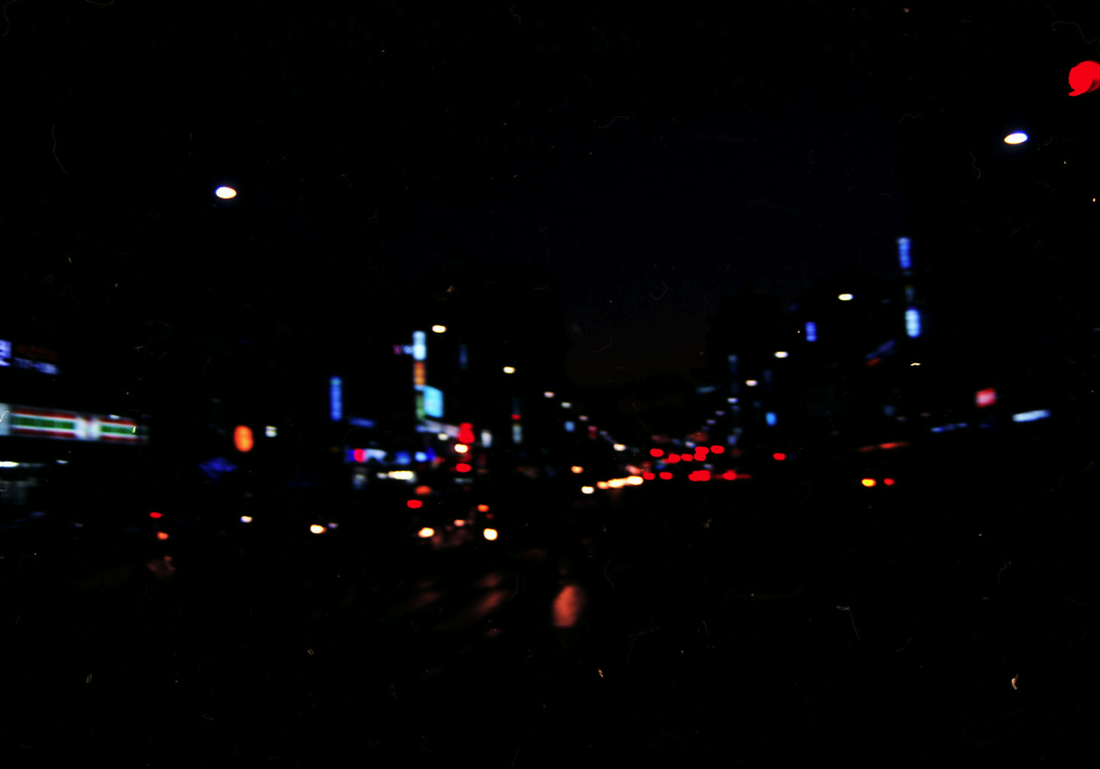
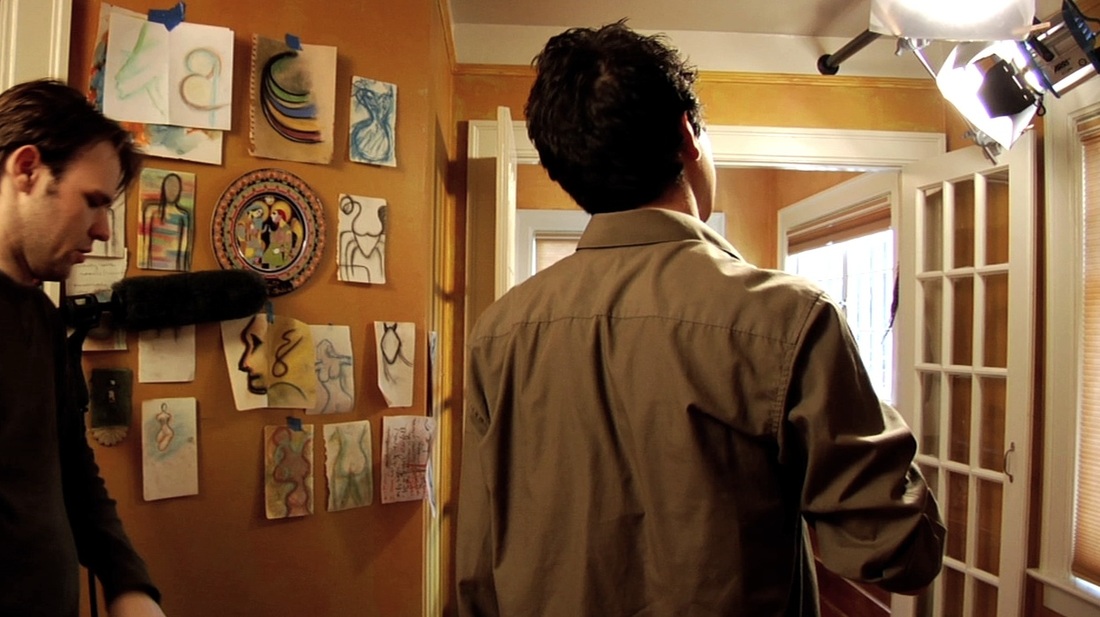
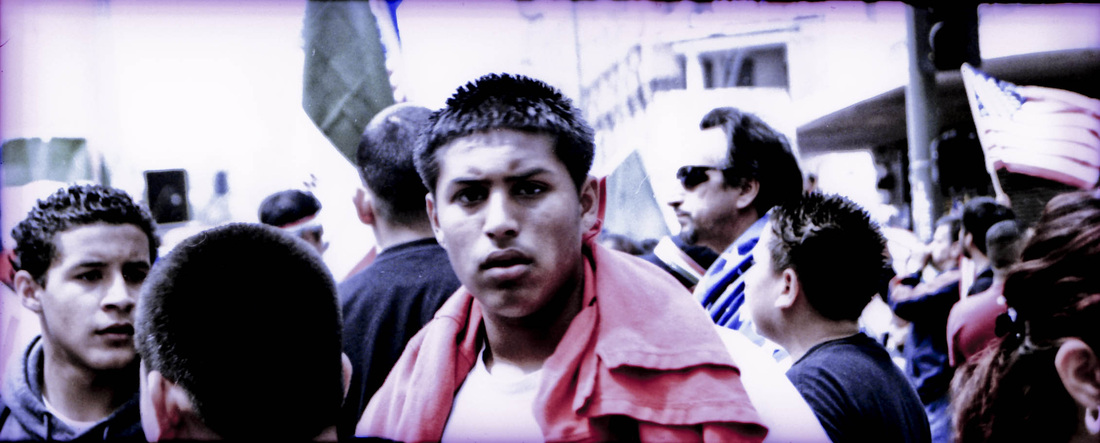
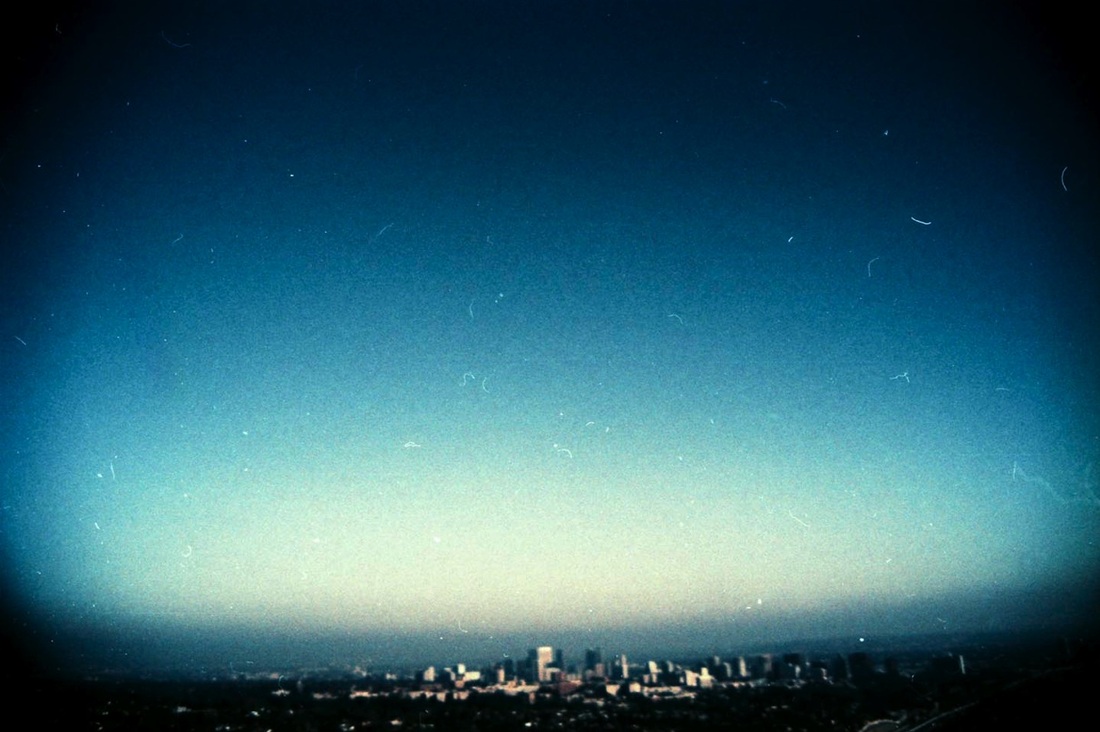

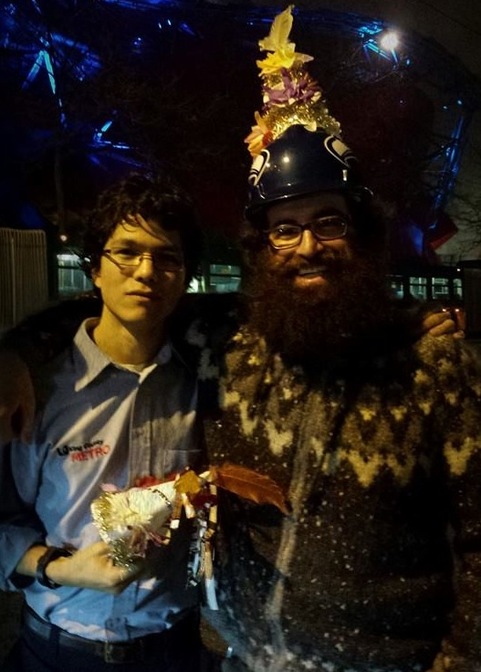
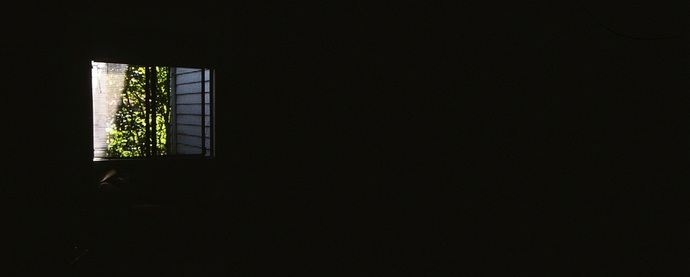
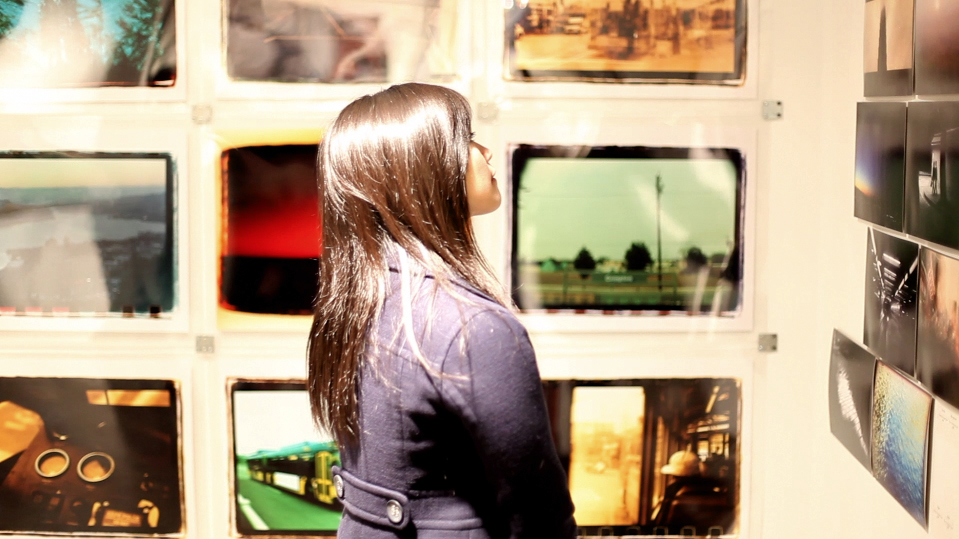
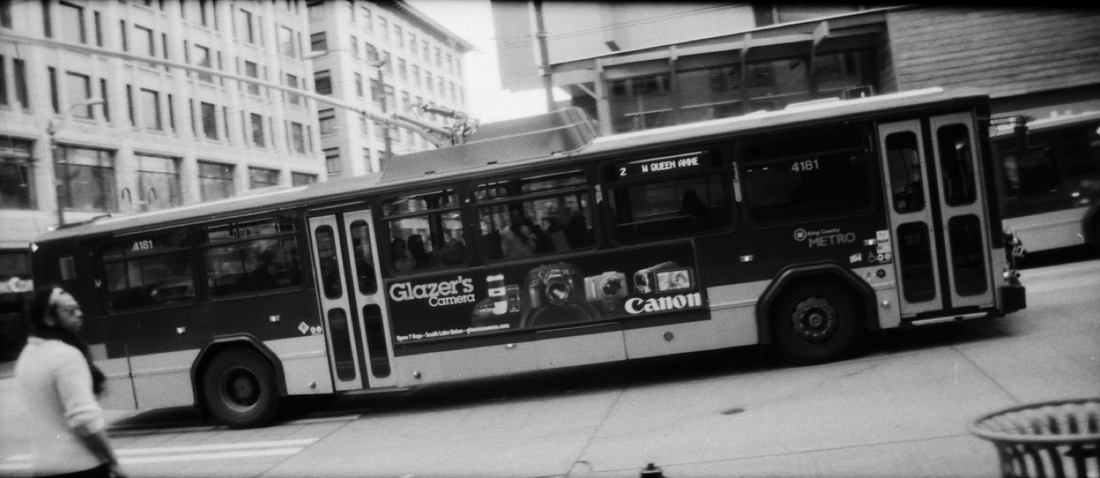
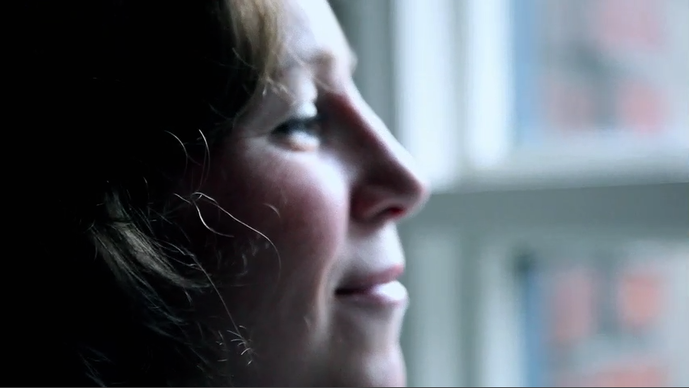
 RSS Feed
RSS Feed
